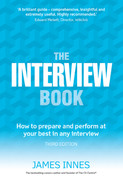Group interviews
A group interview is defined as one in which multiple candidates attend and are assessed simultaneously. The candidates not only get to meet each other but are actually expected to work together on a variety of different tasks, whilst being carefully observed and having their behaviour noted in detail.
Why a group interview?
What are the employer’s motivations in interviewing candidates in a group context rather than one on one? It could be a time-saving exercise or it could be because they place above-average importance on teamwork – or it could be both. Whatever you think their motivations, you should assume that the organisation is looking to identify how you work within a team – what role you naturally fulfil.
What role do you fulfil?
Look at it this way: what role do they want you to fulfil?
Are they looking for a leader? Are they looking for someone who brings out the best in others? Are they looking for the person who generates the ideas or the person who is a dab hand at putting new ideas into practice?
Establish in your own mind what sort of a team player they want you to be and it will help to guide your behaviour.
Maybe you are applying for a role as a team leader. This doesn’t mean that you have to be utterly overbearing and demonstrate to everyone, at all costs, that you’re the boss. Is the employer looking for a fascist dictator? The loudest, brashest, pushiest candidate is rarely the one selected.
You can demonstrate that you work well within a group without aggressively taking the lead.
Working well within a group means listening, cooperating, communicating, generating ideas and solutions. Do you help the group to achieve its objectives or are you more of a hindrance?
Group activities
There are two main types of activity you are likely to encounter at a group interview:
- Verbal activities
- Physical activities.
In a verbal group interview, the group will typically be given a topic (or topics) to discuss, debate and reach a conclusion on. A chair may be appointed by the interviewer (or the interviewer may themselves chair the discussion) or you may all be expected to contribute equally.
Alternatively, you could be assigned role-play exercises; working in small groups of two or more to act out carefully designed scenarios, which could be related to the job on offer or could be of a more abstract, psychological nature.
It’s also a popular technique to ask each candidate to give a brief presentation to the other candidates. Please refer back to the previous chapter for detailed advice on how to handle presentations.
In a physical group interview, activities can vary widely. You may be expected to plan, design and/or physically construct something, or solve a problem or puzzle. Expect the unexpected.
The other candidates
You’re going to be spending a few hours – maybe a whole day – with other candidates. Whilst you might, quite reasonably, see them as competition, there’s no reason to treat them as enemies. On the contrary, you will be assessed on your ability to get on with and to work with these people, so aim to be friendly and communicative right from the start. Make friends, not enemies. Remember that you’re a team.
TOP TIP
Don’t be so loud that you drown everyone else out. Conversely, don’t be so quiet that nobody even notices you!
Under the spotlight
You will be closely observed throughout the day. That might sound stressful but try to keep calm – everyone is in the same boat and they’re probably all just as nervous as you.
Key factors on which you will be assessed include communication, initiative, motivation, determination and the ability to function effectively under pressure.
From the moment you arrive to the moment you leave you’ll be under the spotlight.
